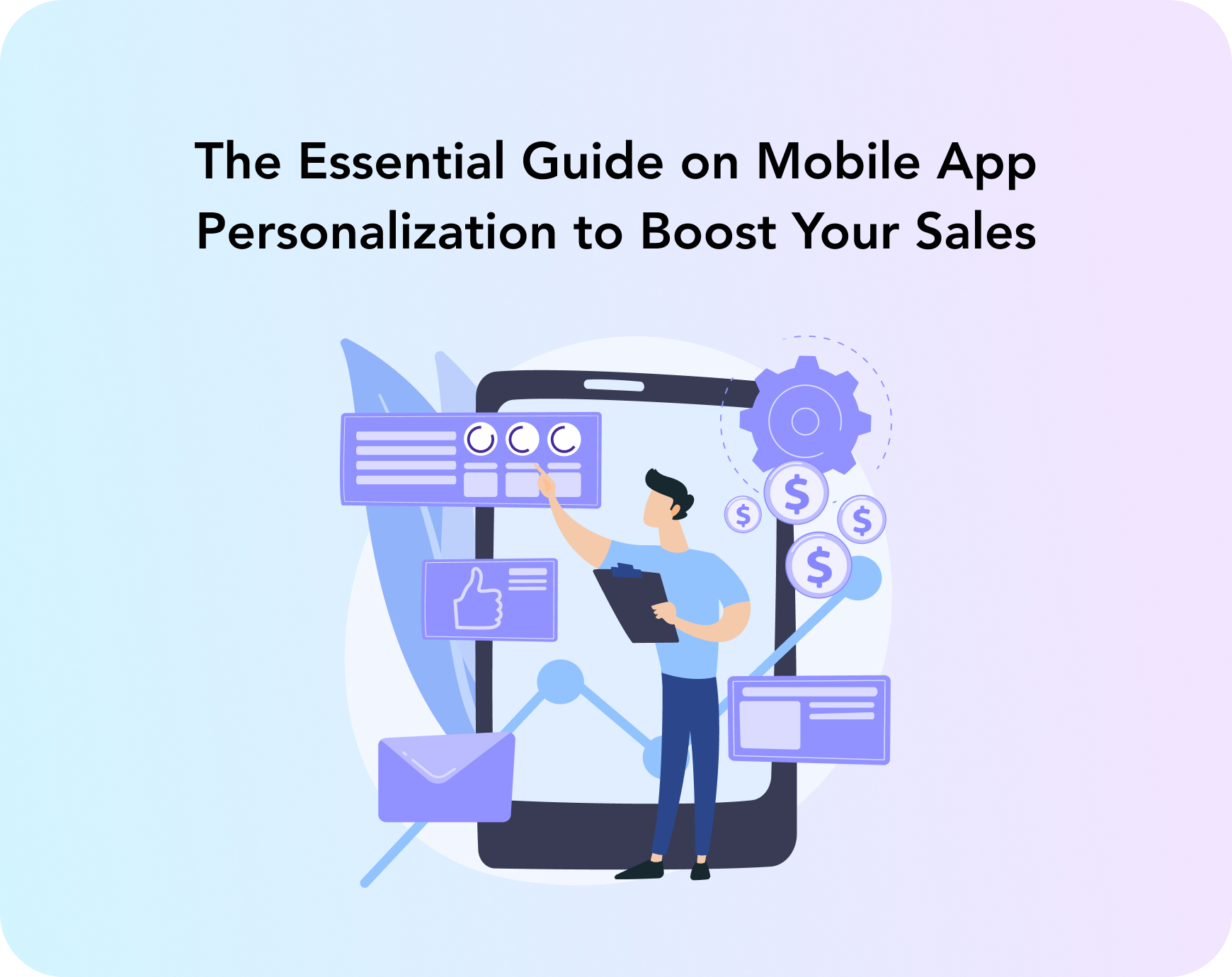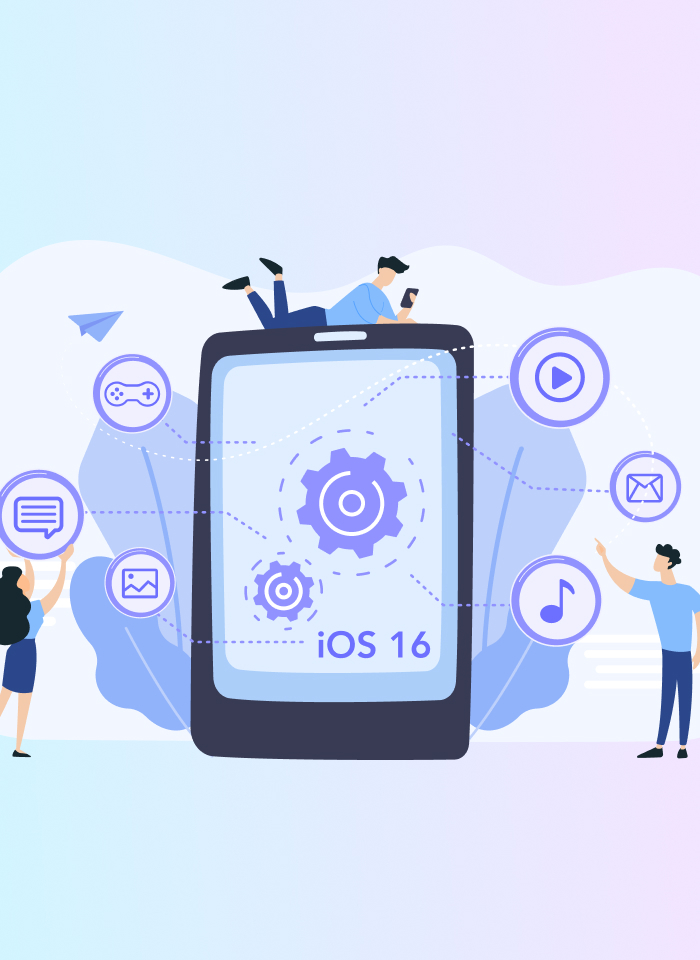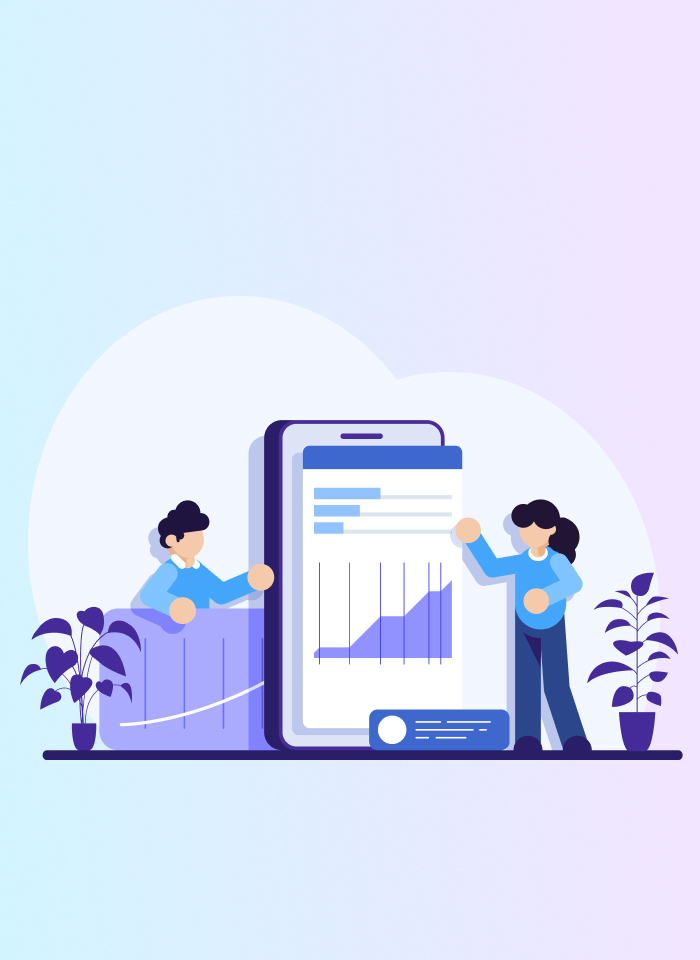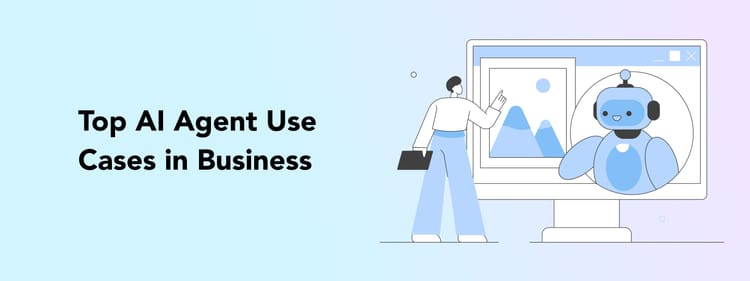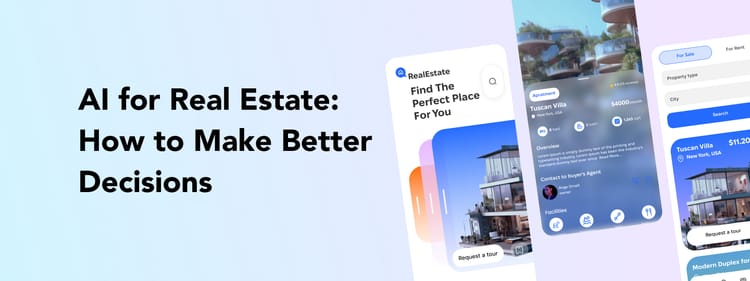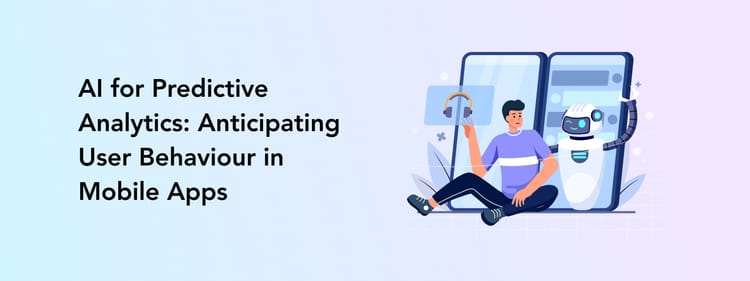Consider this: there are around 2.2 million on the App Store and around 3.5 million apps on Google Play. The competition seems to be rather high, isn’t it true? Each niche contains numerous applications fighting for the users’ attention.
The good news for you is that many apps out there are too similar and offer nothing original to the users. That’s when your solution steps in because introducing a personalized app experience is the way you will win the users’ hearts.
Let’s discuss how to personalize your app to make a truly unique and competitive solution that won’t get lost among dozens of similar applications.
What Does App Personalization Mean
So what exactly is app personalization? It is a method of app organization that introduces content tailored to a specific user. Let’s not confuse personalization with customization. Customization allows users to set their preferences and adapt the app to their liking. For example, choosing a language, setting a certain background, and adding or removing the features on the main screen are elements of customization. Seeing unique promotions, curated content, and personal recommendations are examples of personalization.
Advantages of Personalized Apps
Okay, you might say, this personalization seems like a good way to make my app more interesting. The truth is that mobile app personalization brings way more advantages to your business than just giving it a twist.
As we have mentioned above, a personalized app is a way to stand out in the market and beat the competitors who chose to go the typical, template-like path. What are some other pros of mobile personalization?
More sales
Imagine getting a purchase suggestion in an e-commerce application. You would probably be more inclined to make a purchase if this suggestion is based on the products you bought or viewed before. The formula is quite simple here: people are more interested in getting products that match their likings and needs.
Increased user retention
Introducing app personalization features is an excellent way to keep your users interested in the product and increase brand loyalty. Regularly getting tailored content gives a sensation of surprise as one cannot quite know what awaits them. Additionally, personalizing your app is a way to show your users that you care about their preferences and make them feel somewhat special.
Better user engagement
Seeing content one likes and finding something matching their interests makes users hooked up and motivated to spend more time exploring the app. You probably know the feeling of getting into the spiral of relatable TikToks or useful e-store recommendations. After all, people want to interact with content that feels like it is here just for them. You can make your users see things they care about with personalization.
Guide on How to Personalize Your App
Sounds convincing? Then it’s high time to consider the ways to personalize your mobile app. We will list the necessary steps to prepare the ground and the most popular methods of mobile app personalization.
Collect the necessary data
First things first, to introduce any kind of personalization, you need to collect some information about your users. Otherwise, what will you base your personalization on? By saving the basic information along with the in-app history you will have enough background data to offer personalized content.
The user’s data you might find useful for personalization includes
- Name
- Birthday
- Location
- Device
- Listed interests
- In-app history (preferences, purchases, viewed content)
- App activity (does the user log in every day or not too often?)
- Social media profiles data
As a result, you can offer users tailored content or, let’s say, a special birthday promotion. One thing to always remember is to set up privacy settings and ask users for permission to collect their information.
Work on personalized content
Based on the data you gathered, you can create content specifically for a certain group of users. It is one of the most popular ways to personalize your mobile app. To optimize your content-making efforts, divide your users into groups based on their backgrounds and interests. Each group would have a specific niche.
Let users create their own content
If your app revolves around social media or just has some of its elements (like a comment section or feed), users can interact between themselves and create content. Guess what: it is also an excellent way how to personalize your app.
This method has two advantages. Firstly, each user will be getting a fair amount of personalized content created by others. Secondly, you are also building an active community happy to contribute and keep the content going without your intervention.
Send personalized in-app and push notifications
Tailored notifications are one of the best mobile app personalization examples. By offering reminders, special discounts, or unique offers via notifications you are constantly demonstrating to your users that you remember them. Push notifications motivate users to open the app and get them excited about propositions they can get.
Learn how to introduce geolocation-based push notifications in your application
Add a splash of gamification
Gamification has been among the top mobile app UI/UX design trends for years and there’s a good reason for it. Gamification lets users feel like their in-app experience is unique and there is always something more waiting for them. Points, levels, badges, characters — any of these elements can give a touch of personalization and fun to your app.
Best Examples of App Personalization
Let’s now learn from the best and take a look at some of the good app personalization examples.
Trip Advisor
The Trip Advisor app knows about personalization like no one else. If you open their Experiences section, you will be surprised to see how precise and well-suited their recommendations are. The company uses a machine-learning model to generate suggestions based on the experiences users viewed, checked availability for, or booked before.
Asos
Asos is a popular online clothing retailer that knows all about mobile app e-commerce trends. Their app includes several points of personalization encouraging users to explore more and make a purchase, such as
- Pop-ups stating that a product is low in stock or highly popular
- Bundle offers: products that might go well with the viewed item
- Similar product recommendations
- Fit guide and size choice assistance
As a result, any user browsing the app gets a highly personalized set of recommendations and assistance.
Consider Perpetio Your Trusted Partner
Let us share one more mobile app personalization example. This time from the Perpetio team. Mobile app personalization is the aspect we always strive to introduce in our products because we know how much value it brings to users.
Our recent mental health & meditation project includes a section with recommended meditation sessions based on the ones completed by the user before. As a result, it is easier to find a course fitting one’s request without spending too much time scrolling through options.
Final Thoughts
With the App Store and Play Market flooding with new applications, it is more important than ever to stand out and offer users something different. Personalization is what can differentiate your app from dozens of competitors and bring satisfaction to users who can enjoy tailored content and unique propositions.
FAQ
What is the difference between personalization and customization?
Customization allows users to set the app to their liking while personalization involves creating content tailored to a particular user.
What is the difference between personalization and segmentation?
Segmentation divides users into groups of interest while personalization is centered around one user.
Why is mobile app personalization important?
A personalized app is a way to stand out in the market and beat the competitors who chose to go the typical, template-like path. It also attracts more sales, increases user engagement, and improves user retention.
What are the main methods of mobile app personalization?
The best ways to personalize your mobile app include tailored content, user-produced content, push notifications, and other methods.
